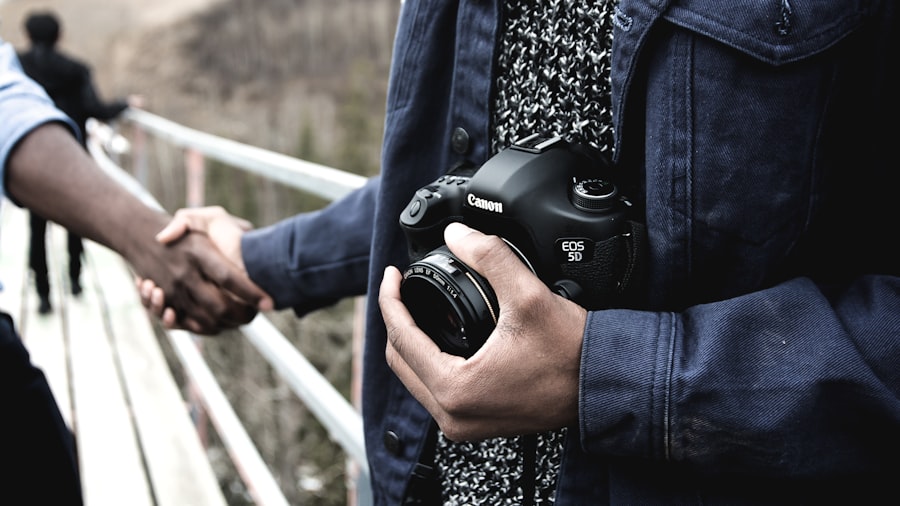Before attending an interview, it is essential to conduct comprehensive research on the company and the position you are seeking. Begin by exploring the company’s official website to gain insight into their mission statement, core values, products, and services. Review recent news articles, press releases, and social media updates to understand the company’s current market position and industry standing.
Additionally, thoroughly examine the specific job description, required qualifications, and responsibilities associated with the role you are applying for. This preparation will enable you to tailor your responses during the interview to align with the company’s requirements and demonstrate your genuine interest in the position. Moreover, invest time in understanding the company’s organizational culture and work environment.
This can be achieved by reading employee reviews on platforms such as Glassdoor or by contacting current or former employees for firsthand information. Gaining insight into the company culture will help you assess your compatibility with the organization and allow you to ask pertinent questions during the interview. By conducting thorough research on both the company and the role, you will be better equipped to showcase your knowledge and enthusiasm during the interview, ultimately enhancing your chances of success.
Key Takeaways
- Research the company and role to understand their values, goals, and expectations
- Practice common interview questions to articulate your skills and experiences effectively
- Dress appropriately to make a good first impression and show respect for the company
- Arrive early to demonstrate punctuality and allow time for unexpected delays
- Maintain eye contact and positive body language to convey confidence and engagement
- Prepare questions for the interviewer to show your interest and initiative
- Follow up after the interview with a thank-you note to express gratitude and reiterate your interest in the position
Practice Common Interview Questions
Identifying Key Skills and Experiences
One of the most effective ways to prepare for an interview is to practice common interview questions. Start by reviewing the job description and identifying the key skills and experiences required for the role. Then, create a list of potential questions that the interviewer may ask based on these requirements.
Common Interview Questions and Practice
Common interview questions include “Tell me about yourself,” “What are your strengths and weaknesses,” “Why do you want to work for this company,” and “Give an example of a time when you faced a challenge at work and how you overcame it.” Practice answering these questions out loud, either by yourself or with a friend or family member, to help you articulate your responses clearly and confidently.
Preparing for Behavioral Interview Questions
In addition to practicing general interview questions, it is important to prepare for behavioral interview questions that assess your past experiences and how you handled specific situations. Use the STAR method (Situation, Task, Action, Result) to structure your responses to behavioral questions, providing specific examples that demonstrate your skills and abilities.
By practicing common interview questions, you will feel more comfortable and prepared during the actual interview, allowing you to showcase your qualifications and suitability for the role.
Dress Appropriately

Dressing appropriately for an interview is essential as it demonstrates professionalism and respect for the opportunity. The appropriate attire will vary depending on the company’s industry and culture, so it is important to research the company’s dress code beforehand. In general, it is best to err on the side of formality by wearing professional business attire such as a suit, dress shirt, tie, and dress shoes.
For women, a tailored suit, blouse, skirt or pants, and closed-toe shoes are appropriate choices. Avoid wearing flashy or distracting clothing, excessive jewelry, or strong fragrances that may detract from your professional image. When in doubt, it is always better to dress more conservatively than to be underdressed for an interview.
Your appearance should reflect your respect for the opportunity and your seriousness about the role. Additionally, paying attention to grooming and personal hygiene is equally important. Ensure that your clothes are clean, pressed, and well-fitted, and that your hair is neat and well-groomed.
By dressing appropriately for the interview, you will make a positive first impression and convey your professionalism and attention to detail.
Arrive Early
Arriving early for an interview is a simple yet crucial step in making a positive impression on your potential employer. Plan your route to the interview location in advance, taking into account potential traffic or public transportation delays. Aim to arrive at least 15-20 minutes before your scheduled interview time to allow for unexpected delays or to complete any necessary paperwork.
Arriving early demonstrates punctuality, reliability, and respect for the interviewer’s time. Upon arrival, use any extra time to compose yourself and review your notes or resume. Take a few deep breaths to calm any nerves and mentally prepare for the interview ahead.
If you arrive too early, consider waiting in a nearby coffee shop or lobby until it is an appropriate time to check in for your interview. By arriving early, you will have a chance to gather your thoughts and present yourself as a composed and professional candidate.
Maintain Eye Contact and Body Language
During the interview, it is important to maintain good eye contact and positive body language to convey confidence and engagement. When speaking with the interviewer, make regular eye contact to show attentiveness and interest in the conversation. Avoiding eye contact can be perceived as disinterest or lack of confidence, so be mindful of maintaining a natural level of eye contact throughout the interview.
In addition to eye contact, pay attention to your body language. Sit up straight with your shoulders back to convey confidence and professionalism. Avoid fidgeting or slouching as this can detract from your overall presence.
Use open gestures and facial expressions to show enthusiasm and engagement in the conversation. Non-verbal cues such as nodding in agreement or smiling can further demonstrate your interest in the role and create a positive rapport with the interviewer. By maintaining eye contact and positive body language, you will appear more confident and capable during the interview.
Prepare Questions for the Interviewer

Preparing for the Interview
Asking thoughtful questions during an interview not only demonstrates your interest in the role but also provides valuable insights into the company and position. Prepare a list of questions to ask the interviewer based on your research of the company and role. These questions can relate to the company’s culture, opportunities for growth and development, expectations for the role, or specific projects or initiatives within the team.
What to Ask and What to Avoid
Avoid asking questions that can easily be answered through basic research or that focus solely on salary and benefits. Instead, aim to ask open-ended questions that encourage a meaningful conversation and showcase your genuine interest in the opportunity. For example, you might ask about the company’s long-term goals or how success is measured in the role.
Benefits of Asking Thoughtful Questions
By preparing thoughtful questions for the interviewer, you will demonstrate your proactive approach and genuine curiosity about the position. This will not only leave a positive impression but also provide you with valuable information to help you determine if the role is a good fit for you.
Follow Up After the Interview
After the interview has concluded, it is important to follow up with a thank-you note or email to express your gratitude for the opportunity and reiterate your interest in the role. Send a personalized message to each person you interviewed with, referencing specific points from your conversation or reiterating your qualifications for the position. This not only shows appreciation for their time but also keeps you top of mind as they make their hiring decision.
In your thank-you note, reiterate why you are excited about the opportunity and how your skills align with the company’s needs. This is also an opportunity to address any points that may not have been fully covered during the interview or to provide additional information that showcases your qualifications. Keep your follow-up concise and professional, sending it within 24-48 hours of the interview.
By following up after the interview, you will leave a lasting impression on the interviewer and reaffirm your enthusiasm for the role. In conclusion, preparing for an interview requires thorough research, practice, attention to detail, and professionalism. By following these steps, you can increase your chances of success and make a positive impression on potential employers.
Remember that preparation is key to feeling confident and showcasing your qualifications during an interview. Good luck!
If you’re looking to improve your confidence for job interviews, you may also be interested in learning about the recruitment, selection, and training of people at Arcadi. This article provides valuable insights into the hiring process and how to stand out as a candidate. Check it out here.
FAQs
What are some common job interview questions?
Some common job interview questions include: “Tell me about yourself,” “What are your strengths and weaknesses,” “Why do you want to work for this company,” and “Can you give an example of a time when you solved a problem at work?”
How can I prepare for a job interview?
To prepare for a job interview, research the company, practice common interview questions, and prepare questions to ask the interviewer. It’s also important to dress professionally and arrive on time for the interview.
How can I build confidence for a job interview?
To build confidence for a job interview, practice your interview answers, visualize a successful interview, and focus on your qualifications and strengths. It can also be helpful to remind yourself that the interviewer is interested in your skills and experience.
What should I do if I don’t know the answer to a question during a job interview?
If you don’t know the answer to a question during a job interview, it’s okay to take a moment to gather your thoughts. You can also ask for clarification or provide an example of a similar situation where you were able to find a solution.
How can I make a good impression during a job interview?
To make a good impression during a job interview, be prepared, dress professionally, maintain good eye contact, and show enthusiasm for the position. It’s also important to listen actively and ask thoughtful questions about the company and the role.



